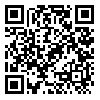BibTeX | RIS | EndNote | Medlars | ProCite | Reference Manager | RefWorks
Send citation to:
URL: http://journal.rums.ac.ir/article-1-7663-en.html
Background and Objectives: Early childhood education programs, if well designed, can have positive, significant, and long-term effects on children. The present study aimed to design and validate a training package for empowering preschool teachers and to determine its effectiveness in promoting children's emotional development for a successful entry into school.
Materials and Methods: This study employed a mixed-methods research design. In the qualitative part, 15 teachers working in preschool centers in Tehran were interviewed. Then, content validation was conducted by 15 curriculum planning experts using the Content Validity Ratio (CVR) and Content Validity Index (CVI) methods of Waltz and Bausell (1981). In the quantitative part, there were 50 preschool children who were randomly selected and replaced in the experimental and control groups (25 children in each group). The Greenspan Emotional Development Questionnaire (2002) was used to collect data. The data were analyzed using two-way repeated measures analysis of variance (ANOVA).
Results: The results showed that the educational package for empowering preschool teachers for children's emotional development had four subcategories including emotional self-awareness, emotional deviance, separation and differentiation of emotions from each other, and emotion regulation techniques. The results showed that the CVR and CVI values of the developed package was higher than 0.49 and 0.79, respectively. The quantitative results showed that the training package for empowering preschool children was significantly effective in increasing the emotional development of preschool children (F=78.03, p<0.001).
Conclusion: According to the current results, it is recommended that educational psychologists and preschool teachers use the developed educational model to enhance the emotional development of preschool children.
Keywords: Educational content, Preschool teachers, Emotional development, Preschool children, Blended learning
Funding: This study did not have any funds.
Conflict of interest: None declared.
Ethical considerations: The Ethics committee of Islamic Azad University, Zanjan Branch, approved the study (IR.IAU.Z.REC.1402.123).
Authors’ contributions:
- Conceptualization: Maryam Soltaninejad, Homam Moayedfar
- Methodology: Maryam Soltaninejad, Fatemeh Nazari, Homam Moayedfar
- Data collection: Maryam Soltaninejad
- Formal analysis: Maryam Soltaninejad, Homam Moayedfar
- Supervision: Maryam Soltaninejad, Homam Moayedfar
- Project administration: Fatemeh Nazari
- Writing - original draft: Maryam Soltaninejad
- Writing - review & editing: Maryam Soltaninejad, Fatemeh Nazari, Homam Moayedfar
Received: 2025/02/9 | Accepted: 2025/05/17 | Published: 2025/07/19
| Rights and permissions | |
 |
This work is licensed under a Creative Commons Attribution-NonCommercial 4.0 International License. |







